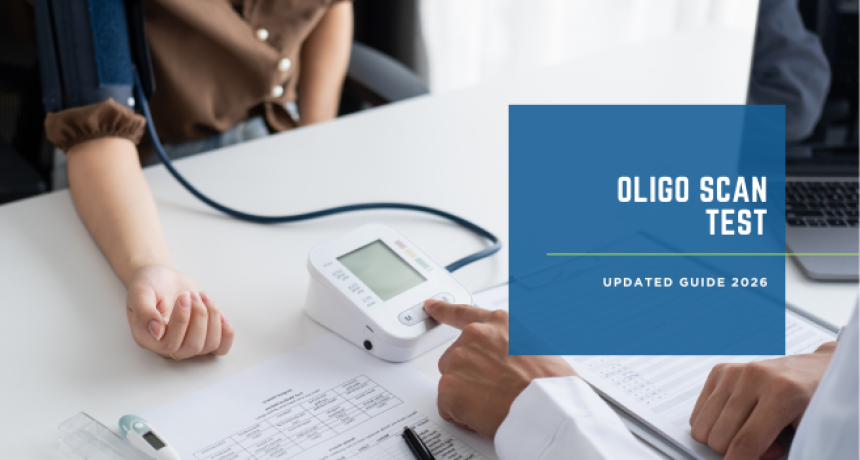Effective Tips on Thyroid: How to Prevent Disorders
2025-05-28 Most people don’t think about their thyroid — until something feels off. Maybe you’re tired all the time, your weight is fluctuating, your hair’s thinning, or your mood feels unpredictable. These symptoms are often brushed off or blamed on stress. But they could be early signs that your thyroid — the tiny butterfly-shaped gland in your neck — is out of sync. The good news? You don’t have to wait for a diagnosis to take charge of your thyroid health. At L&B Clinic, we believe that prevention starts with listening to your body, understanding your risk factors, and making small, science-backed changes that protect your hormones before they fall out of balance. Thyroid problems are surprisingly common — especially for women. In India, 1 in 10 people live with thyroid dysfunction, and most don’t even know it. Here’s what causes that imbalance: Stress that throws your hormones out of rhythm Low nutrients like iodine, selenium, or iron Toxins in your environment (like plastics or pesticides) Gut imbalances that interfere with hormone conversion And sometimes, a genetic tendency that needs to be managed “You don’t ‘catch’ a thyroid disorder overnight. It builds over time. That’s why prevention is powerful — you’re taking action before damage happens.” Your thyroid relies on certain nutrients to create and balance hormones. Without them, it slows down — even if you’re eating “healthy.” Nutrients that matter: Iodine (for hormone creation) – seaweed, iodized salt Selenium (for hormone conversion) – Brazil nuts, sunflower seeds Zinc (for immunity + hormone production) – pumpkin seeds, lentils Iron (for energy and thyroid enzyme support) – spinach, beetroot Magnesium (for stress + hormone balance) – almonds, leafy greens At L&B, we use detailed micronutrient blood tests to find out exactly what your body is missing — and help you fix it through food first. Stress might feel mental, but it’s biochemical. And it’s one of the biggest reasons thyroid symptoms show up — especially if you’re already juggling work, family, or hormonal changes like pregnancy or perimenopause. Chronic stress affects your thyroid by: Slowing hormone production Blocking the conversion of T4 to active T3 Increasing inflammation Triggering autoimmunity in people with a genetic tendency What helps? 10–15 minutes of breathwork or gentle yoga Going tech-free after 9 PM Nature time: walks, morning sun, grounding Herbal adaptogens (if guided by a doctor) The world is full of invisible chemicals that mess with your hormones — called endocrine disruptors. They’re found in: Plastic bottles and food containers Cosmetics with parabens or phthalates Pesticides on produce Non-stick pans Air fresheners or cleaning sprays Simple swaps can protect your thyroid: Use glass or stainless-steel bottles Choose clean skincare products Eat organic for high-residue foods Switch to cast iron or steel pans Ventilate your home well Struggling with bloating, constipation, or brain fog? That’s not just a gut issue — it could also be slowing down your thyroid. Around 70% of thyroid hormone conversion happens in your gut. So if your microbiome is inflamed, undernourished, or out of balance, your thyroid feels the effect. At L&B, we look at: Your gut symptoms Your digestion and absorption Your microbiome diversity (using GUT 360) Inflammatory markers And then we support healing with fermented foods, fiber, herbs, and stress-lowering tools Most people wait until symptoms become unbearable before checking their thyroid. But by then, the imbalance has already taken hold. We recommend early and regular testing — especially if you’re: Frequently tired Gaining or losing weight without reason Having irregular periods Facing fertility issues Losing hair or feeling cold often Have a family history of thyroid or autoimmune disease TSH, Free T3, Free T4 Thyroid antibodies (Anti-TPO, Anti-TG) Reverse T3 Nutrient markers like iron, zinc, selenium In some cases, ultrasound for nodules or inflammation Here are a few things that seem small — but have a big impact over time. Our goal is simple: Keep your thyroid working optimally — for life. Yes — especially if you act early. With the right tests and habits, you can avoid the triggers that lead to dysfunction. If you’re symptom-free, once a year. If you have symptoms or family history, every 3–6 months. You can lower your risk by supporting your gut, reducing stress, and removing triggers before the immune system flares. Only based on blood work. Over-supplementing can harm more than help. Always work with a practitioner. Start with testing — and review your lifestyle with a thyroid-literate clinician. Fatigue is often the first red flag. You don’t need to wait until your thyroid slows you down. Prevention isn’t complicated — but it does require intention. At L&B Clinic, we guide you through the process: Smart testing Personalized nutrition Lifestyle realignment And expert insight to keep your hormones — and your life — in balance 📍 Book a Thyroid Prevention Consult 🧪 Start with a Hormone + Nutrient Check-up 🌿 Get a List of Best Foods for Thyroid Health That Puts You Back in ControlIntroduction: Why Prevention Is Easier Than You Think
What Can Go Wrong With Your Thyroid?
— Dr. Deepika Krishna, L&B Clinic1. Feed Your Thyroid the Nutrients It Needs
2. Don’t Underestimate Stress
3. Make Your Home a Hormone-Safe Zone
4. Your Gut and Your Thyroid Are Best Friends
5. Get Tested Early — Not Late
Comprehensive thyroid testing at L&B includes:
6. Everyday Habits That Protect Your Thyroid

The L&B Thyroid Prevention Approach
Here’s how we do it:FAQs On Preventing Thyroid Disorders
1. Is it really possible to prevent thyroid problems?
2. How often should I test my thyroid?
3. Can I prevent Hashimoto’s if it runs in my family?
4. Should I take supplements?
5. What’s the first step if I feel tired all the time?
Let’s Catch the Signs Before They Become a Diagnosis
Medically Reviewed by: Dr. Deepika Krishna, Founder, L&B Clinic
.png)















